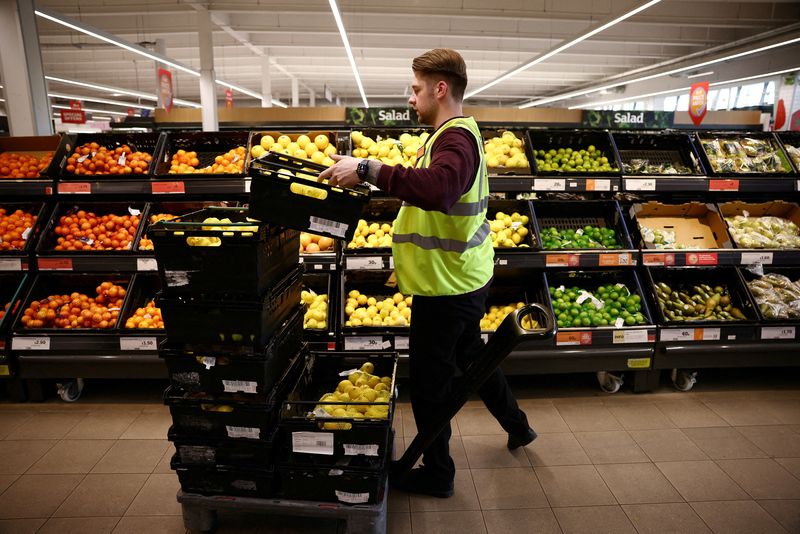By William Schomberg and David Milliken
LONDON (Reuters) -British consumer price inflation is set to peak at 18.6% in January, more than nine times the Bank of England's target, an economist at U.S. bank Citi said on Monday, raising his forecast once again in light of the latest jump in energy prices.
"The question now is what policy may do to offset the impact on both inflation and the real economy," Benjamin Nabarro said in a note to clients.
Consumer price inflation was last above 18% in 1976.
The front-runner to become Britain's next prime minister, Liz Truss, is likely to come up with measures to support households hit by surging energy prices, which might slightly lower the peak rate of inflation, Nabarro said.
Energy regulator Ofgem is due to set out new maximum tariffs for households on Friday, which will take effect in October.
The last tariff increase in April raised the annual bill for a typical household to 1,971 pounds ($2,322) from 1,278 pounds, following a surge in natural gas prices after Russia's invasion of Ukraine.
The next increases are likely to be steeper still, after a 15% rise in natural gas prices over the past week.
Citi forecasts Ofgem will raise the tariff cap to the equivalent of 3,717 pounds from October, with further increases to 4,567 pounds in January and 5,816 pounds in April 2023.
Energy analysts Cornwall Insight also raised their forecasts for Ofgem's regulated tariffs to 3,554 pounds for October, 4,650 pounds for January and 5,341 pounds for May.
"It is difficult to see how many will cope with the coming winter," Cornwall Insight consultant Craig Lowrey said.
In its forecasts at the start of August, the BoE assumed the cap would rise to around 3,500 pounds in October and that energy prices would then stabilise. Consumer price inflation would thus peak at 13.3% in October.
With inflation now set to peak substantially higher, the BoE's Monetary Policy Committee was likely to conclude that the risks of more persistent inflation had intensified, Citi said.
"This means getting rates well into restrictive territory, and quickly," Nabarro said. "Should signs of more embedded inflation emerge, we think Bank Rate of 6-7% will be required to bring inflation dynamics under control. For now though, we continue to think evidence for such effects are limited."
The BoE announced a rare half-percentage-point interest rate increase earlier this month and investors expect another big move when the MPC makes its next scheduled monetary policy announcement on Sept. 15.
Nabarro forecast retail price inflation, which is used to set the return on index-linked bonds, would peak at 21.4%.
($1 = 0.8487 pounds)
